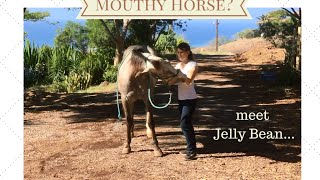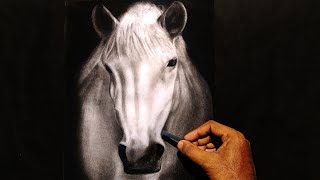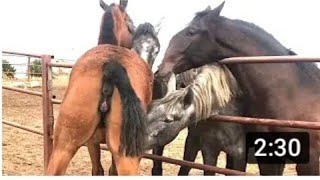Thursday, 15 January, 2026г.
















Где искать: по сайтам Запорожской области, статьи, видео ролики
пример: покупка автомобиля в Запорожье
Handling a Mouthy/ Biting Horse
Mouthy horses are quite common, especially young horses, and especially young geldings. How to handle or correct a mouthy horse is one of the most frequent questions that I am asked.
Biting or "mouthy" behavior can stem from a variety of causes. It can be natural playfulness in a youngster, a warning or display of agression, a sign of frustration, or a learned habit for stopping some activity that the horse does not like (such as tightening a girth).
This past week, as I was spending several days on the island of Molokai, Hawaii, I had the opportunity to work with a young horse named Jelly Bean who was a great example of mouthy behavior.
There are numerous different techniques for correcting mouthy horses, but I feel it mostly boils down to this:
Avoid getting bit
Make biting uncomfortable for the horse
Make it clear to the horse that biting won't get him anywhere - no release of pressure, no opportunities to snatch food or play the "tag, you're it" game
Stay calm and don't take it personally
In this week's video, you can watch how I actually use several of the above tips while working with Jelly Bean. Enjoy!
Find more riding and training videos at www.CRKtrainingblog.com
Теги:
mouthy horse biting horse what to do with a mouthy horse how to stop a horse from biting horse bites young mouthy horse correcting biting correcting mouthiness
Похожие видео
Мой аккаунт


 У вашего броузера проблема в совместимости с HTML5
У вашего броузера проблема в совместимости с HTML5


